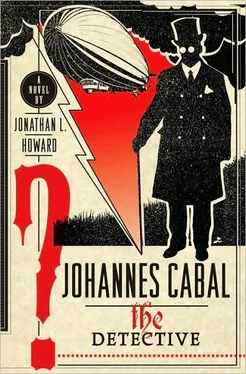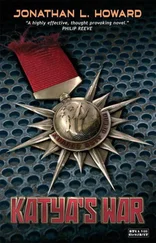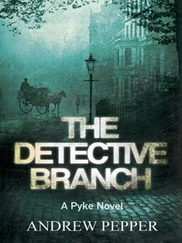Marechal made no attempt to hide his sneer. “Are you begging for your life, Cabal?”
“Not at all. Just attempting to make something constructive of this debacle. By the same coin, if I were to kill you” — the count laughed contemptuously — “ if I were to kill you, Count Marechal, this country would certainly fall to pieces. There’s nobody around to take your place. Think on it.”
The count reflected for a moment, their sword tips just touching. “I’ve thought about it. You’ve forgotten two important details. First, I’m not going to lose this duel. Second, I want you to die. Now.”
Cabal considered. “I suppose I could see my way clear to begging for my life as long as you didn’t insist on any outright grovelling?”
Marechal’s blade supplied his answer. Cabal tried to break ground and disengage, but Marechal covered the distance with an impressive flèche that Cabal had to dodge, followed immediately by a passata soto — known outside fencing circles as ducking — to avoid being decapitated.
This was an unwelcome development. Cabal had gained the impression that Marechal probably started duelling as a student, in the fashion of the Prussian schläger , a bizarre contest in which the combatants’ main goal is to supply each other with scars about the face which impress the ladies no end. Apart from the armour the two parties are covered with in order to reduce all wounds to a cosmetic level, its only notable feature is that the duellists never move from the spot. The count’s unexpected and unwelcome entrée into the world of combat ballet — that damn flèche must have carried him the best part of ten feet — was just one more thing that Cabal didn’t want to have to deal with at this precise moment.
It was only when Marechal said, “Touché, Herr Cabal,” and smiled malevolently, that Cabal realised he’d been hit. His shirt was ripped high on his left breast, the thrust having penetrated the cloth, scored his chest, exited beneath the shoulder, and done the same to his left upper arm. Against the white linen, there seemed to be a lot of blood.
Cabal looked straight at Marechal. “You wouldn’t accept my offer, Marechal. Now let me tell you one thing you couldn’t know. I won’t let you kill me. There’s more at stake than you could possibly imagine in your blinkered little world. I don’t have time for your stupid games.” All the fear was leaving him. The doubts and uncertainties that had blurred his vision were going now, and the world was coalescing into a beautifully clear picture of what needed to be done and why. All that was left was a single motivation that glowed within him like white fire. His soul, his poor mistreated soul, tended him and directed him. Marechal stopped being the only thing in the world and became a rather pathetic man with a silly moustache who believed his puerile plans for grabbing a few useless square inches on the map actually mattered. “I am leaving here. If you attempt to stop me, I shall kill you. Is that understood?”
Marechal’s opinion of Cabal may have changed in that moment, but it certainly didn’t improve. “You insolent cur!” he roared, and launched a terrifying attack, culminating with a mollinaro that could have cored a rhinoceros. They found themselves momentarily corps à corps . Marechal called him a lowborn bastard and backhanded him so hard that Cabal spun away and rolled onto the table.
Cabal blinked, saw Marechal appear above him, his sabre held high like a meat cleaver, and rolled to his left, dodging the blade that swept past him like a guillotine. He quickly climbed to his feet as Marechal pulled the sword from the ruined surface and, as they seemed to be extemporising and as the table gave him a substantial height advantage, he kicked the count in the face and broke his nose.
The Count Marechal staggered back, rallied, and ran to the far end of the table, where he could mount it, using a chair as a step, without opposition. Cabal and Marechal faced each other along its length, blood on both of them. They paused: Cabal expressionless and cold; Marechal with teeth bared.
Now they knew each other. There would be no more talking. Marechal saluted, but this time it finished with a slash of the blade that left an almost tangible cut hanging in the air. Cabal saluted, and it was a staccato, precise thing. His sword tip travelled to precise points, his wrist moved through exact angles.
Then they fought.
CHAPTER 3
in which names are called and a fugitive takes flight
“Of course I have a reservation. A government reservation. Here is my authorisation.”
Gerhard Meissner was a low-ranking member of the Mirkarvian civil service and, as is sometimes the case, he had hugely inflated ideas of his importance. If he didn’t arrive in Katamenia on schedule with the incredibly important “Agricultural Land Remittance Discussion Papers (Third Draft)” — currently safely tucked away in his documents folder — well, it hardly bore thinking about. Unable to have the latest draft of the papers, civilisation would be at a loss to discuss the remittance of agricultural lands. The result … catastrophic. Thus, he had been issued with the necessary documentation to bypass the lesser folk at Emperor Boniface VIII Aeroport customs and pick up his ticket. He examined it now and was pleased to discover that he had a berth aboard the Princess Hortense , a brand-spanking-new aeroship of the Mirkarvian civil aeroforce, MirkAir. “You’re a lucky man, sir,” said the woman at the counter. “The Hortense was only commissioned a week ago — this is her maiden flight.”
Meissner sniffed. He wasn’t lucky, he was a civil servant, and this was no more than was due to a corpuscle of the body politic. Instead, he asked, “Why are all these people milling around? It’s like race day in here.”
“Some trouble in the city, sir. People panic. It’s only human.”
A well-dressed man, sweating and frantic, pushed by Meissner, who glared at him fiercely. “Please!” said the man. “Have you got any more berths available? Any at all?”
“I’m sorry, sir. All places aboard the Princess Hortense were booked in advance.”
“What?” The sweating man saw the ticket in Meissner’s hand. “Please, sir. Would you be willing to sell that billet? My daughter … There’s rioting in the city. I simply want her to get to safe …”
“Sell my ticket?” snapped Meissner. “The impertinence, sir! Even if I were at liberty to sell this ticket — which I am not, it being government property — I very much doubt that I should feel disposed to …” But the man had more urgent matters to attend to than listening to how important Meissner was, and had already gone. Meissner pulled himself up to his full height, a little over six feet, and looked dignified, an expression lesser mortals could assume only with the aid of lemon juice and alum. The woman at the desk thought that he could almost have been attractive if it weren’t for what his personality did to his face. He noticed her attention and she smiled, politely but without warmth. “When does the ship depart?” he demanded.
“In two hours, sir. If you’d care to check your luggage in now, you’ll have some time to relax aboard before she lifts.”
“Relax?” he snorted. “I shall work!”
Having emphasised his innate superiority to the herd, he walked away.
Meissner went to the handling building — a capacious hangar split into many small bays with padlocked gates — to check his luggage. On his way back out, he was accosted by a serious-looking man dressed in black and white. “Excuse me, sir,” said the man. “Might I have a word?”
“If you’re trying to buy my ticket, my good man, I must — ”
Читать дальше











